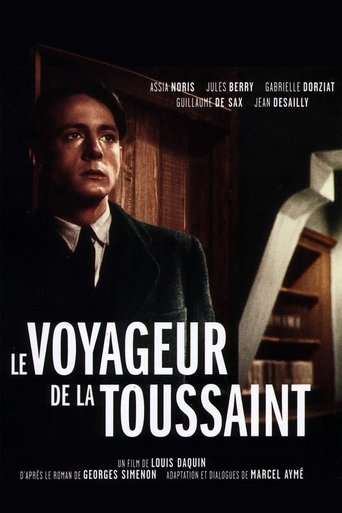"Le Voyageer de la Toussaint," a 1943 cinematic gem produced by Francinex, is a compelling blend of mystery and drama set against the backdrop of Italy and France. Directed by Louis Daquin, the film is an adaptation of Georges Simenon's novel of the same name. It follows the journey of a young man, Gilles Mauvoisin, portrayed by the talented Jean Desailly, who embarks on a quest to uncover the truth about his family's past. The film's atmospheric setting and evocative cinematography capture the essence of post-war Europe, drawing viewers into a world of intrigue and suspense. The narrative unfolds as Gilles arrives in La Rochelle, a coastal town in France, to visit his aunt and uncle during the Toussaint holiday. As he delves deeper into his family's history, he uncovers dark secrets that challenge his understanding of identity and belonging. The film's pacing is deliberate, allowing the audience to absorb the nuances of the characters and the unfolding mystery. The performances, particularly those of Desailly and the supporting cast, are nuanced and emotionally resonant, adding depth to the film's exploration of familial bonds and hidden truths. One of the standout elements of "Le Voyageur de la Toussaint" is its use of the Italian and French landscapes to enhance the storytelling. The stark beauty of the coastal scenes and the rustic charm of the towns serve as a poignant counterpoint to the film's darker themes. The collaboration between the Italian and French production teams is evident in the seamless integration of these settings, which adds a layer of authenticity to the narrative. The film's score, composed by Joseph Kosma, complements the visual elements, creating an immersive experience that lingers long after the credits roll. "Le Voyageur de la Toussaint" remains a significant work in the canon of French cinema, not only for its compelling storytelling but also for its historical context. Released during a time of great upheaval in Europe, the film offers a poignant reflection on the human condition and the search for truth amidst chaos. Its enduring appeal lies in its ability to weave a gripping mystery with a profound exploration of family dynamics, making it a timeless piece of cinematic art.
Year1943
Runtime102 min
GenresDramaCrime
Production countriesItalyFrance
